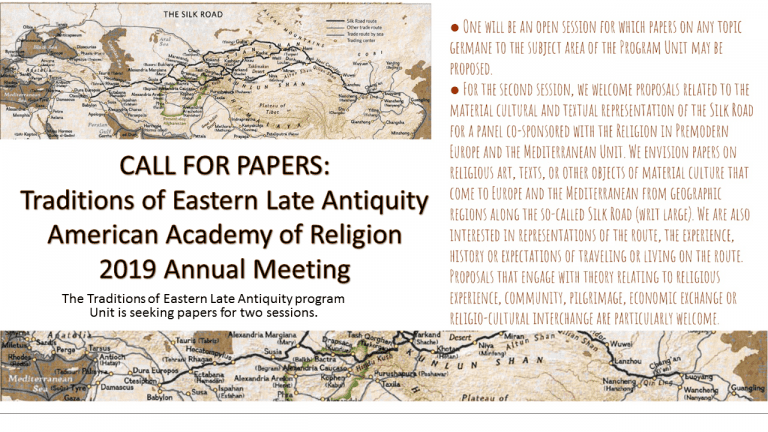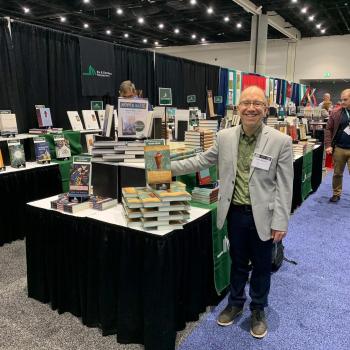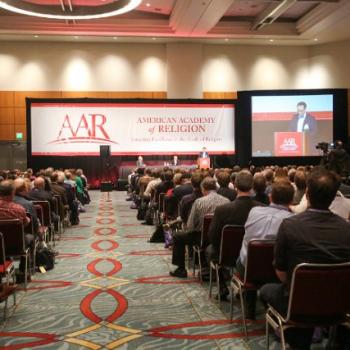
I have shared the call for papers for the Traditions of Eastern Late Antiquity program unit before, but want to do so again, adding an image in the hope that this may facilitate the sharing of this information. Please pass it on to colleagues who work on Central Asia and East Asia, with whom I may not have direct connections, but who may find the call for papers of interest!
Call for Papers:
The Traditions of Eastern Late Antiquity program Unit is seeking papers for two sessions.
- One will be an open session for which papers on any topic germane to the subject area of the Program Unit may be proposed.
- For the second session, we welcome proposals related to the material cultural and textual representation of the Silk Road for a panel co-sponsored with the Religion in Premodern Europe and the Mediterranean Unit. We envision papers on religious art, texts, or other objects of material culture that come to Europe and the Mediterranean from geographic regions along the so-called Silk Road (writ large). We are also interested in representations of the route, the experience, history or expectations of traveling or living on the route. Proposals that engage with theory relating to religious experience, community, pilgrimage, economic exchange or religio-cultural interchange are particularly welcome.
Statement of Purpose:
This program unit focused on Late Antiquity in the East aims to provide a home for the study of religious traditions that are rooted in Mesopotamia, Persia, and western Asia, particularly those parts that were outside the Roman cultural reach such as Zoroastrianism, Manichaeism, and Mandaeism. While the unit will focus on late antiquity, many of these traditions, and particularly their extant texts come to us from much later periods, and this scholarly issue will be part of our discussions. In addition, many of the traditions that were born in this time and place also spread to other parts of the world, and the study of them in those forms and contexts also has a place within this program unit, as does investigation of their response to the rise of Islam in the region. In addition, this unit’s focus is not exclusively on those traditions that developed uniquely in this region, but also those which, when transplanted there, had significant evolutions in that milieu that differ from their counterparts in other times and places (e.g. Christianity, Judaism). We likewise encourage research which focuses on the interaction between the various communities and traditions of this place and time.
You can submit proposals through the AAR PAPERS system.
Thank you in advance for either submitting proposals, or helping to spread the word, or both!













